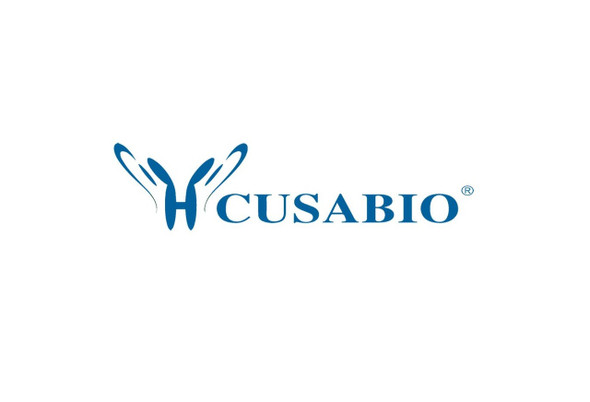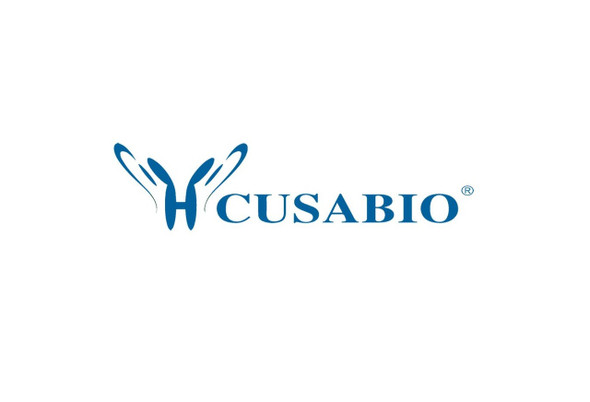Cusabio Escherichia coli Recombinants
Recombinant Escherichia coli NAD (P) H-flavin reductase (fre) | CSB-RP185374Ba
- SKU:
- CSB-RP185374Ba
- Availability:
- 3 - 7 Working Days
Description
Recombinant Escherichia coli NAD (P) H-flavin reductase (fre) | CSB-RP185374Ba | Cusabio
Alternative Name(s): Aquacobalamin reductaseFMN reductaseFerrisiderophore reductase CNAD(P)H:flavin oxidoreductaseRiboflavin reductase [NAD(P)H]
Gene Names: fre
Research Areas: Others
Organism: Escherichia coli (strain K12)
AA Sequence: TTLSCKVTSVEAITDTVYRVRIVPDAAFSFRAGQYLMVVMDERDKRPFSMASTPDEKGFIELHIGASEINLYAKAVMDRILKDHQIVVDIPHGEAWLRDDEERPMILIAGGTGFSYARSILLTALARNPNRDITIYWGGREEQHLYDLCELEALSLKHPGLQVVPVVEQPEAGWRGRTGTVLTAVLQDHGTLAEHDIYIAGRFEMAKIARDLFCSERNAREDRLFGDAFAFI
Source: E.coli
Tag Info: N-terminal 6xHis-tagged
Expression Region: 2-233aa
Sequence Info: Full Length of Mature Protein
MW: 30.1 kDa
Purity: Greater than 90% as determined by SDS-PAGE.
Relevance: Catalyzes the reduction of soluble flavins by reduced pyridine nucleotides. Ses to reduce the complexed Fe3+ iron of siderophores to Fe2+, thus releasing it from the chelator.
Reference: Highly accurate genome sequences of Escherichia coli K-12 strains MG1655 and W3110.Hayashi K., Morooka N., Yamamoto Y., Fujita K., Isono K., Choi S., Ohtsubo E., Baba T., Wanner B.L., Mori H., Horiuchi T.Mol. Syst. Biol. 2:E1-E5(2006)
Storage: The shelf life is related to many factors, storage state, buffer ingredients, storage temperature and the stability of the protein itself. Generally, the shelf life of liquid form is 6 months at -20?/-80?. The shelf life of lyophilized form is 12 months at -20?/-80?.
Notes: Repeated freezing and thawing is not recommended. Store working aliquots at 4? for up to one week.
Function: Catalyzes the reduction of soluble flavins by reduced pyridine nucleotides. Seems to reduce the complexed Fe(3+) iron of siderophores to Fe(2+), thus releasing it from the chelator.
Involvement in disease:
Subcellular Location:
Protein Families: Fre/LuxG FAD/NAD(P) flavoprotein oxidoreductase family
Tissue Specificity:
Paythway:
Form: Liquid or Lyophilized powder
Buffer: If the delivery form is liquid, the default storage buffer is Tris/PBS-based buffer, 5%-50% glycerol. If the delivery form is lyophilized powder, the buffer before lyophilization is Tris/PBS-based buffer, 6% Trehalose, pH 8.0.
Reconstitution: We recommend that this vial be briefly centrifuged prior to opening to bring the contents to the bottom. Please reconstitute protein in deionized sterile water to a concentration of 0.1-1.0 mg/mL.We recommend to add 5-50% of glycerol (final concentration) and aliquot for long-term storage at -20?/-80?. Our default final concentration of glycerol is 50%. Customers could use it as reference.
Uniprot ID: P0AEN1
HGNC Database Link: N/A
UniGene Database Link: N/A
KEGG Database Link: KEGG
STRING Database Link: STRING
OMIM Database Link: N/A









